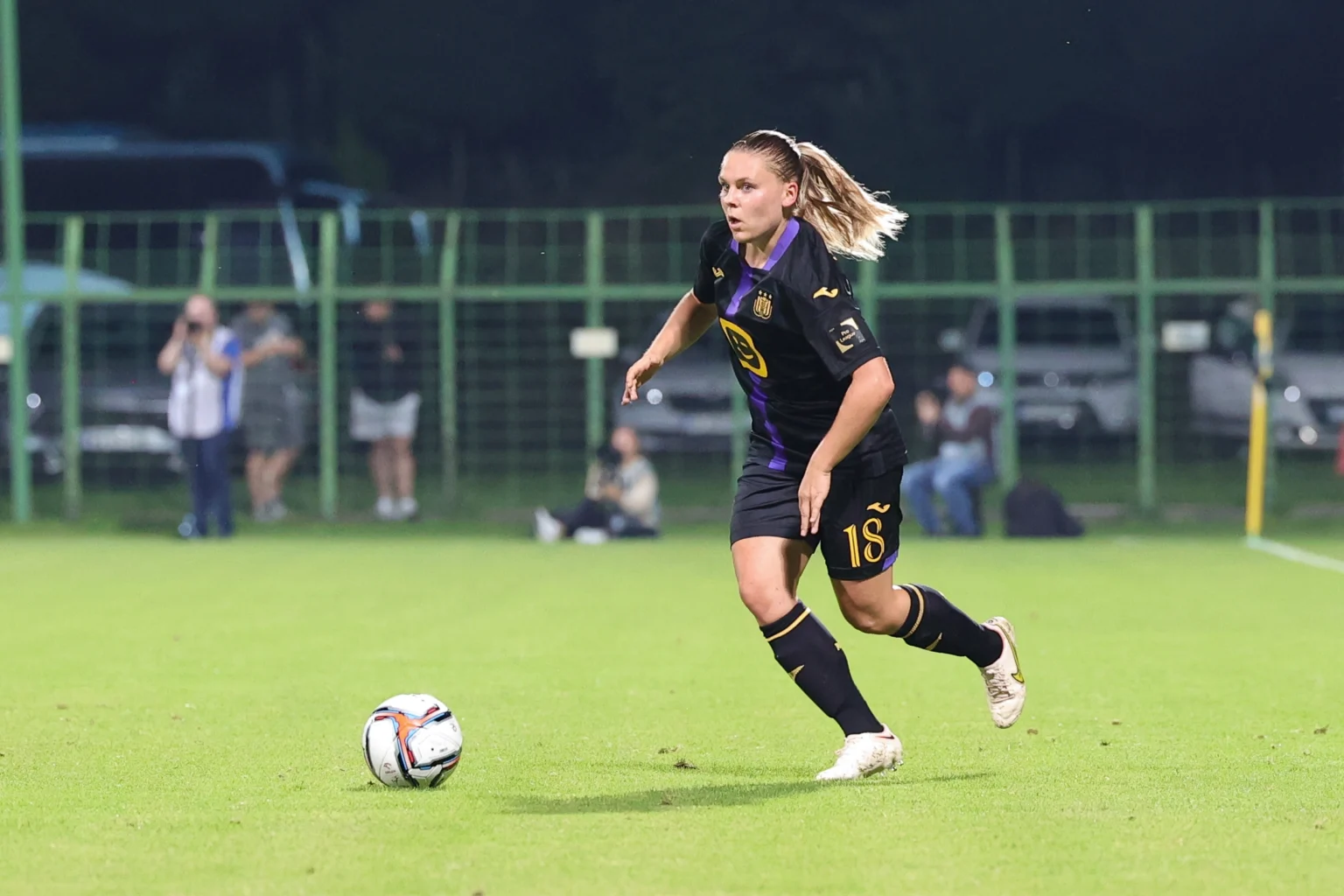
Navigating the Path to a Football Scholarship
Insights from a Former International Student-Athlete at Harvard University
A football scholarship offers significant athletic and academic benefits for footballers. Lara Schenk from our Keystone Sports Germany team, is a former international student-athlete who got recruited by Harvard’s football team. In this article, Lara shares her experiences and insights about the process.
Getting a football scholarship in the USA can change your life, giving you both athletic and academic opportunities. As a former international student-athlete who attended Harvard University on a need-based scholarship and was recruited by their football (soccer) coaches, I know how challenging this process can be.
In this blog post, I’ll share what it takes to get an American soccer scholarship, based on my own experiences before, during, and after my time at Harvard.
Key points:
- Review the academic eligibility requirements for your football team and university of choice.
- Back home, play football at an academy, centre of excellence, or regional team, as well as preferably the youth national team.
- Start your recruiting process early and professionally with a sports scholarship agency.
- Create a football highlight video.
- Build your academic CV.
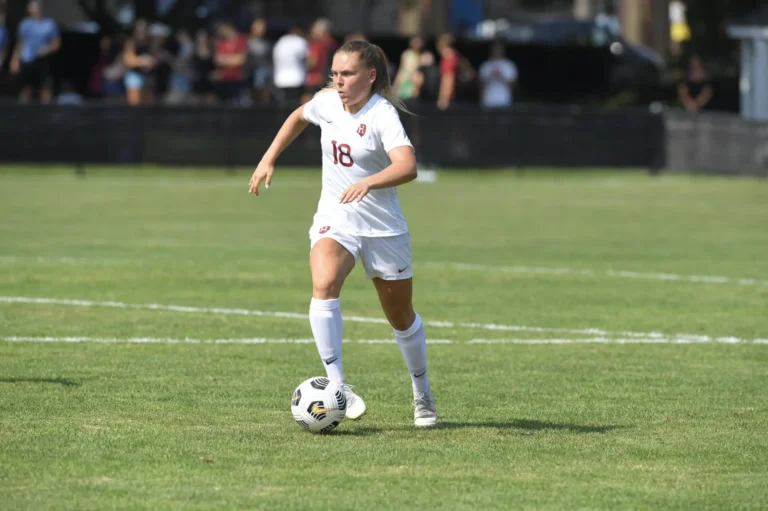
Academic Excellence:
One of the cornerstones of obtaining a US football scholarship, particularly at prestigious institutions like Harvard, is academic prestige. Many universities seek student-athletes who not only excel on the pitch but also demonstrate a commitment to their studies.
Maintaining a strong academic record is essential throughout secondary school to meet the rigorous admission standards of top-tier universities. Something that I found important and surprising was the level of scrutiny that all secondary school report cards are looked at with. This means that doing well in school from Year 9 onwards is valuable to show continuous determination.
While your grades do not have to be perfect, you should be around or above the average in most courses and show particular interest and passion in a few that might translate into a university degree later. For example, I enjoyed psychology in secondary school a lot and could see myself choosing this as my major in university. Therefore, I made sure to do well in my secondary school psychology classes, take my psychology projects seriously, and use other interdisciplinary moments like my extended essay to dive into an aspect of psychology that I found interesting at the time.
Football Skills:
Of course, an American soccer scholarship requires exceptional talent on the pitch. Coaches look for athletes who possess outstanding technical skills, tactical understanding, physical prowess, and a strong work ethic.
Participating in competitive leagues, attending showcases, and receiving recognition through awards or honours can enhance your visibility to football recruiters. I also made sure to analyse the similarities and differences between European and US football styles to prepare well and build excitement to get better as a player.
During secondary school, I played on boys’ teams, therefore, I had the robustness and aggressiveness of a good defender already but felt that I was still lacking the athleticism to be a more versatile player. Knowing that the university sport system in the USA emphasised strength and conditioning sessions much more than German football academies back home did at the time, helped me to know my areas of improvement and build determination to add these aspects to my game.
Leadership and character:
Beyond academic and athletic achievements, universities value student-athletes who demonstrate leadership qualities and exemplary character in their personal and professional lives.
This can mean captaining your team, volunteering in your community, or developing a hobby that shows care and integrity for the people around you. All this can strengthen your candidacy for a football scholarship at any university in USA.
Coaches seek individuals who will contribute to their team’s success and uphold the institution’s values. I joined extracurricular clubs in secondary school that aligned with my values, such as the PLAN (Because I Am A Girl) group that advocated for gender equality around the world through local meetings, bake sales to raise money, and advocacy events such as banners in the school and presentations to younger years.
Networking and Recruitment:
Navigating the recruitment process can be daunting, especially for international student-athletes. I remember feeling overwhelmed with the number of American university teams to filter through and the number of tasks to complete on time to be eligible to play.
Utilising recruitment services, attending showcases and camps, and reaching out directly to university coaches can help you gain exposure and establish connections. Building a strong recruiting profile with videos, statistics, and recommendations can enhance your visibility and attract the attention of university programmes.
At Keystone Sports, you will find experts in this field who will help you manage the tasks and deadlines to ensure that you can be the best student-athlete when you attend your university.
Standardised Testing and Eligibility:
While it is only a minor section of the recruiting process that can be overlooked, I think it is worth mentioning earlier that standardised tests will be an important part of your journey. In addition to academic and athletic credentials, standardised testing such as the SAT or ACT is often required for admission to universities offering football scholarships.
Understanding the testing requirements and preparing diligently can improve your chances of meeting eligibility criteria. I took the SAT too lightly at first and did not prepare for a long time, so don’t make my mistake. The subjects and content are like your secondary school curriculum, but I would recommend practising the type of questions and timing of each section a lot more than the content itself.
Financial Aid and Scholarships:
While athletic scholarships can significantly offset the cost of university tuition, it’s essential to explore other forms of financial aid as well. Filling out the Free Application for Federal Student Aid (FAFSA) and researching scholarship opportunities can help alleviate the financial burden associated with higher education.
Additionally, understanding the terms and conditions of your scholarship offer is crucial to managing expectations and planning for the future. While this might not be the case if you are offered a full football scholarship, I would still recommend understanding other options and pathways in case you decide to stop playing football during your university career or have a career-ending injury.
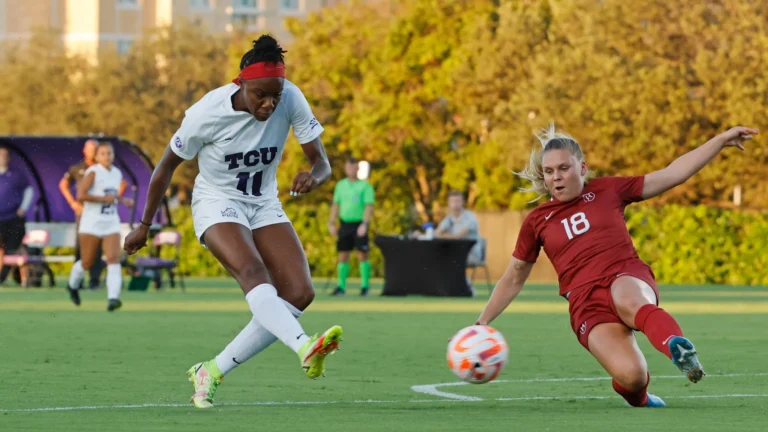
By navigating the recruitment process effectively, preparing well, and excelling on the pitch and in school, you can maximise your chances of realising the transformative opportunity that a football scholarship holds.
As a former international student-athlete, I can only recommend using football to open doors to universities that you may not have thought possible and seeing the world through your sport. Football scholarships not only let you play college football in the USA, but also allow you to focus on your studies without worrying about a financial burden and building yourself a promising future.
Share this article:

About the author
Lara Schenk
Lara Schenk, sports and education consultant at Keystone Sports, holds a Bachelor’s degree in Psychology from Harvard University and plays professional football at reigning Belgian champion RSC Anderlecht. Working and studying at the intersection of psychology and gender equality in sports, she uses her platform to improve the educational and sports marketing opportunities and well-being of athletes.
More related articles
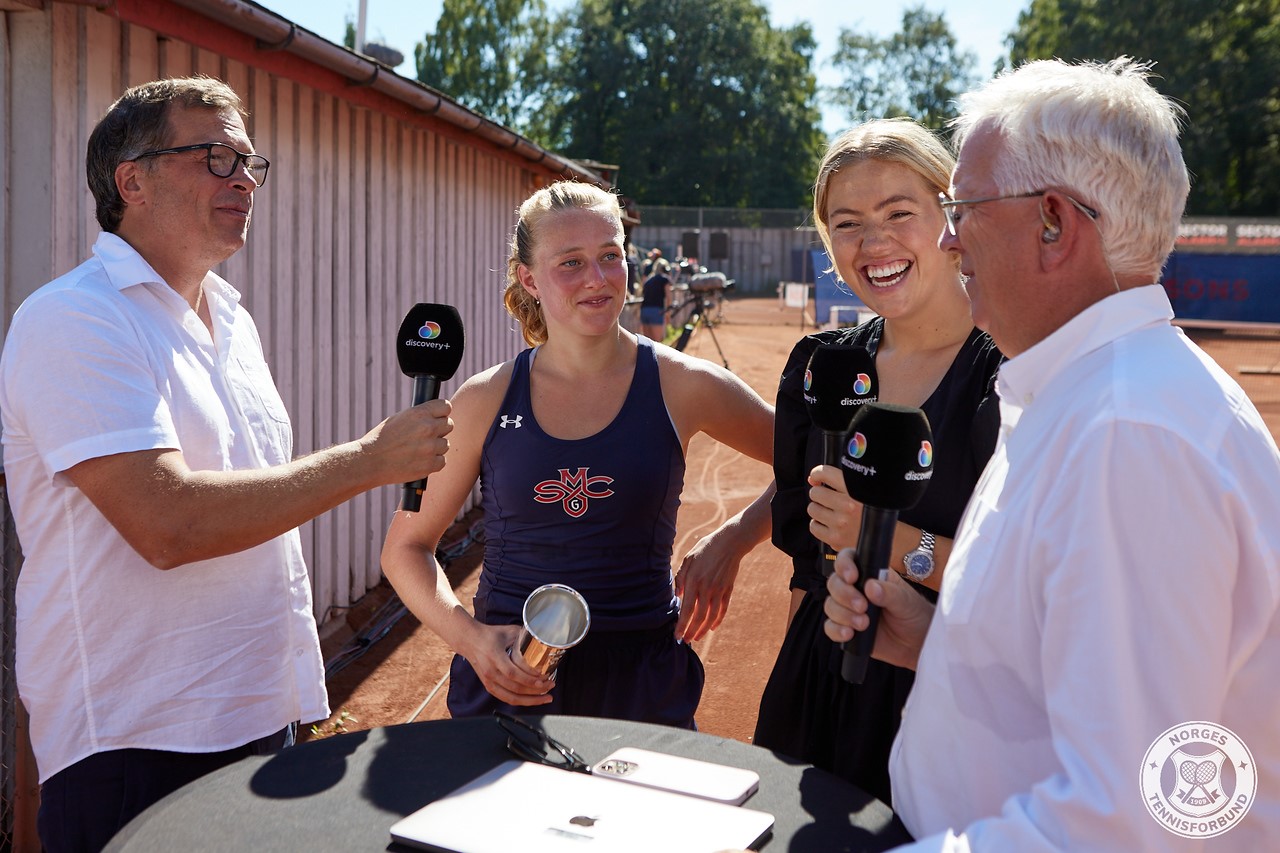
Bolkesjø Hovda national tennis championship winner
Lene Mary Bolkesjø Hovda, currently a student-athlete on a tennis scholarship, is the new champion of the Norwegian Tennis Championship!
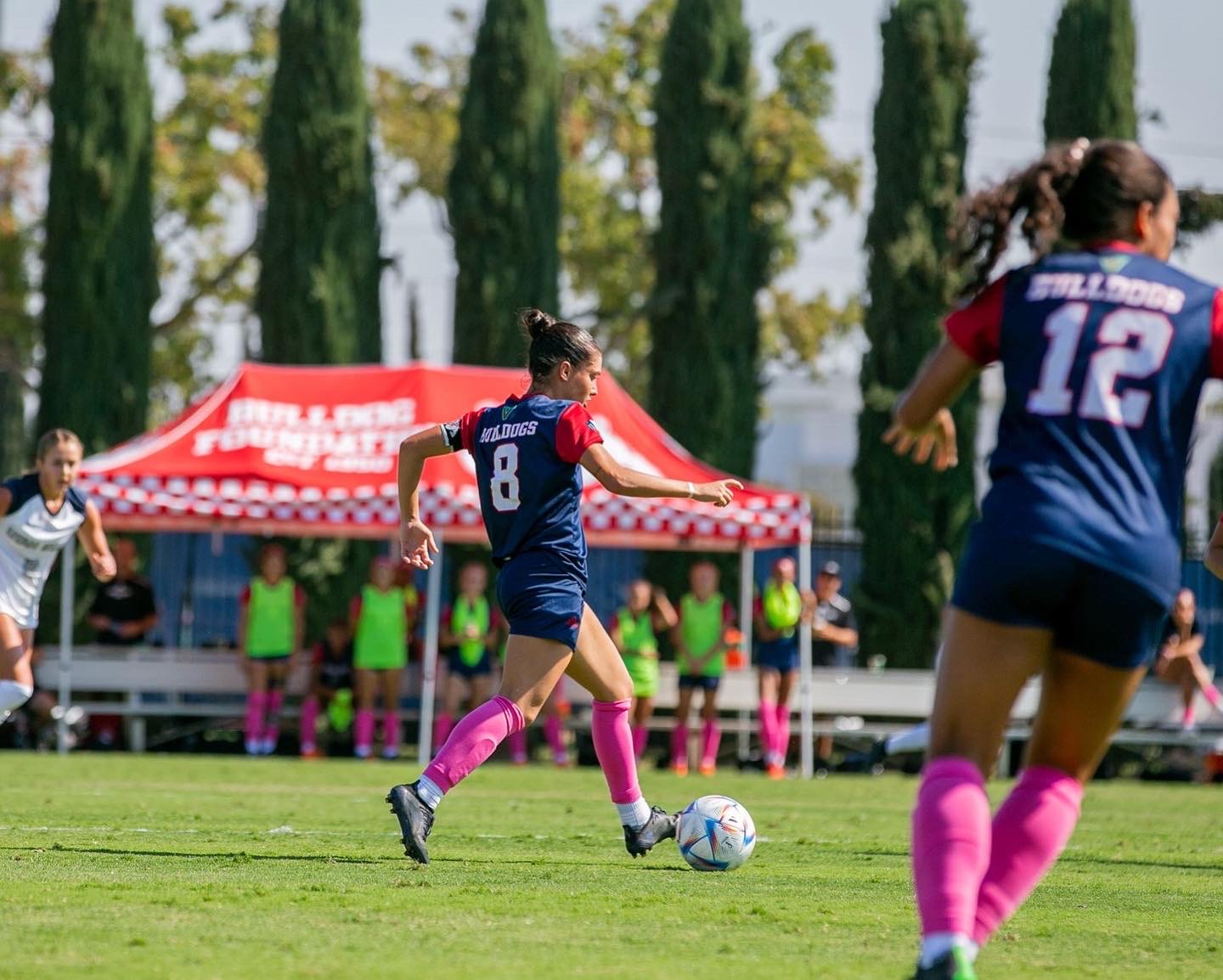
My Experience In Women’s College Football In The United States
Discover how women’s football scholarships in the United States offer unique resources, opportunities, and support. Student-athlete Lorena Montañés shares her firsthand experience and compares women’s football in the US and Europe.

College Golf Spring Break: From Kiawah Island to Hawaii
Women’s golf is one of the most popular sports at universities in the US. But what is it like to be a college golf student-athlete? You get to travel and compete in incredible locations – like Kiawah Island and Hawaii!

